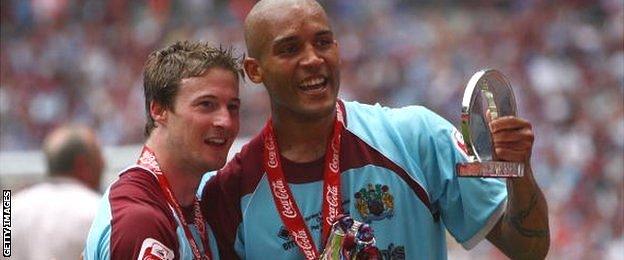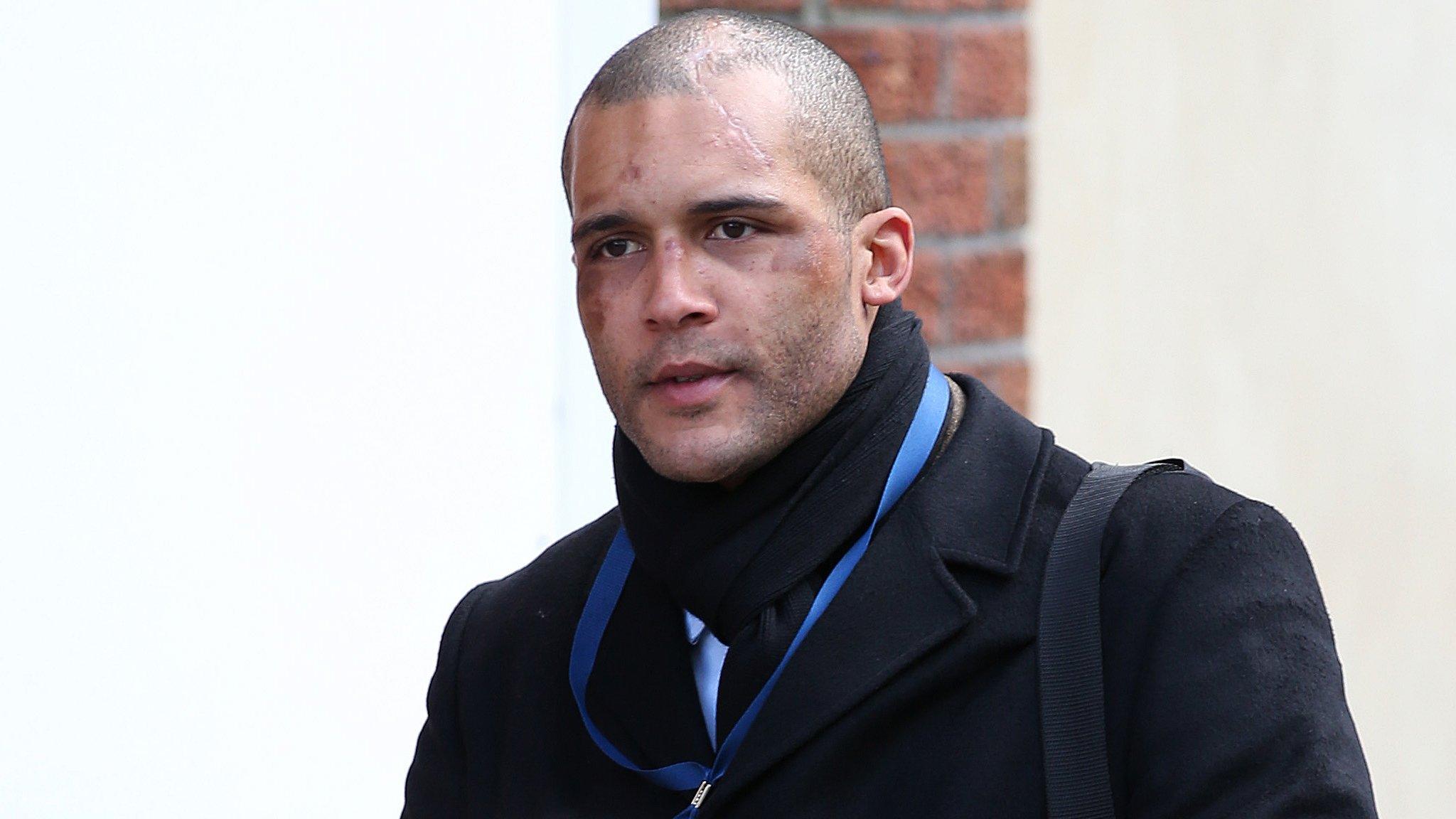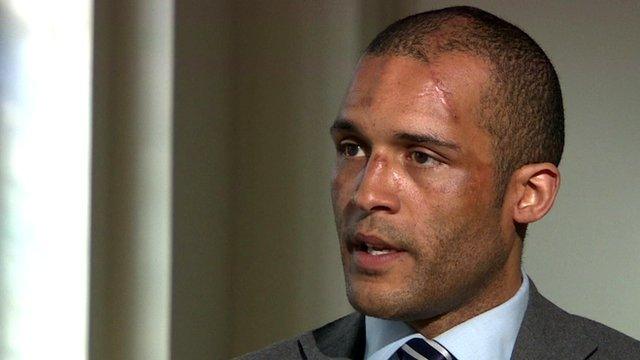Clarke Carlisle says some sports 'lagging on mental health'
- Published
'We have a duty of care to players'
Some sports are "failing to address" the issue of mental health, according to retired footballer Clarke Carlisle.
Sports such as boxing and American football have not given mental and physical health the same importance, he told the Victoria Derbyshire programme.
But he praised cricket and rugby league for "investing heavily" in support for players and staff.
Former Burnley and QPR player Carlisle, 35, tried to take his own life in December 2014 while severely depressed.
He said sport in general had progressed from "ignoring mental health to at least acknowledging it exists" but added more needed to be done.
The Mental Health Charter for Sport and Recreation,, external of which Carlisle is an ambassador, has more than 250 signatories - including the Football Association (FA), Rugby Football Union and Lawn Tennis Association.
But Carlisle, a former Professional Footballers' Association chairman, called on the FA and individual football clubs to help establish a support network for players and raise awareness.
"A huge percentage of the athletes suffering with mental health problems don't know they're suffering," he said. "They just think they have a drink problem or an anger issue."
He added many sportsmen and sportswomen worry about "losing pride" if they discuss their mental health, or that it will have a "negative effect" on their prospects.
Carlisle's comments come on the day world footballers' union Fifpro is set to release a study of mental health disorders in football, for which 800 current and former players from 11 countries were interviewed.
The research builds on an earlier Fifpro pilot study that found 39% of retired professional footballers have a mental illness, while 26% of active professional footballers reported signs of anxiety and depression.
Fifpro chief medical examiner Dr Vincent Gouttebarge said on Monday: "We know that much more needs to be done to protect and support players. The stigma around mental illness must be removed so players feel more comfortable coming forward. They must know they are not alone."
'Getting stronger every day'
Carlisle tried to take his own life on 22 December.
Two days earlier he had been stopped by police after his car almost hit a lorry in north London. He was later banned for drink-driving.
Afterwards he said he had been left severely depressed by the end of his football career, financial problems and the loss of a TV punditry role.
Carlisle - who spent six weeks in hospital - said he was now "getting stronger and healthier every day".

Carlisle, pictured with Wade Elliott, helped Burnley win promotion to the Premier League by defeating Sheffield United in the 2009 Championship play-off
He added: "I have more of an awareness of my own mental health than ever before. You have to learn about yourself to spot the signs that things aren't good."
Carlisle said his family can notice changes in his mood simply through his voice on the telephone or the number of tweets he is posting.
He added his three children had been "wonderful" following his split from his wife of 14 years, Gemma, earlier this year.
"My personal life has been in the public eye but we're making it work as much as you can with two people getting divorced," he said.
Professional years
Carlisle said the natural ups and downs of sport provided him with the opportunity to hide his mental health problems as a professional.
"Football was a fantastic sticking plaster... you lose a game and can get drunk with the lads and no-one thinks less of you.
"But secretly I was in a darker place and using the football as a cover."
The former Premier League defender said he did not realise the full extent of his depression until he tried to take his own life, having previously "boxed off his emotions".
He is now accustomed to openly discussing the subject, but says this has brought its own challenges.
"I'm constantly judged by my mental health. That can be frustrating, but it's part of me speaking out."
The Victoria Derbyshire programme is broadcast on weekdays from 09:15-11:00 BST on BBC Two and BBC News Channel.
- Published25 March 2015

- Attribution
- Published26 March 2015
